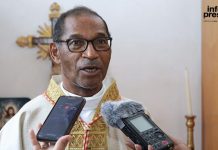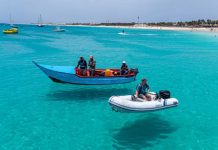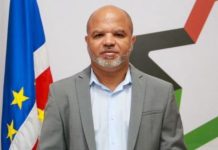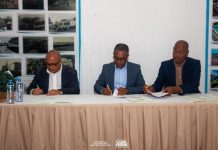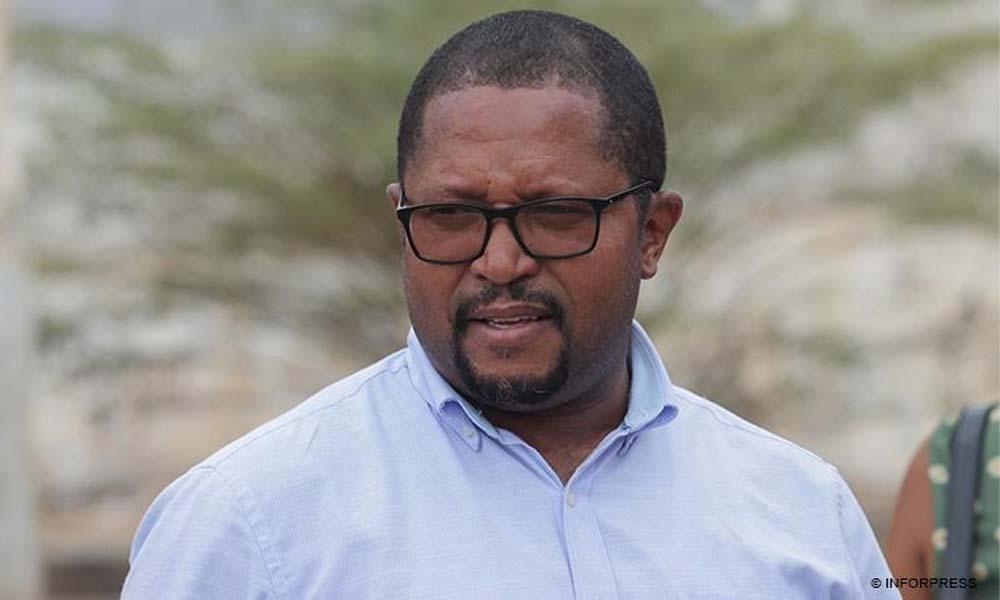
Africa-Press – Cape verde. The introduction of mathematics in all areas of education, from the 10th grade onwards, is a way of instilling greater rigor and quality in the education system, defends the national director of Education, . “We don’t want to manufacture disapprovals.
As of this academic year (2022/23), all teaching areas, from the 10th year onwards, will have the discipline of mathematics, namely Science and Technology, Economic-Social, Humanities and Arts, although the latter two are mathematics applied to the areas .
The measure, which is being contested by voices from civil society and teachers, is not a standardization of teaching, but a way to better prepare students for university and professional life, as explained by Adriano Moreno, to A NAÇÃO.
Main changes
At the secondary level, this year the changes take place in the tenth year of schooling, from where students will be able to choose the area to follow.
The areas of Humanities and Arts will have a curriculum reinforcement, with the introduction of the discipline of mathematics, mandatory, but applied to the reality of each area.
“Today, in practically all areas of the courses, students need some reinforcement in terms of mathematics. Of course, it is a different mathematics from that taught in the areas of Social Economics and Science and Technology, but it will serve, above all, to give some upgrade to students, at least to
have at least what is the basic tool to continue the other courses”, reasoned.
The measure was conceived, according to our interviewee, when it became clear that, over time, the scientific and exact areas are being left behind. “We see this in the universities themselves. Nowadays, math and physical chemistry courses have very few people”, says Moreno, safeguarding that students should not be scared.
“It is a mathematics applied to these areas, with a differentiated methodology, it will be worked in this sense and we hope that this will not be another element to fail students, but that it will serve, above all, to give greater scientific background”, he guarantees.
three year experiment
The official guarantees that there is a team working on its implementation, with the involvement of the University of Cape Verde and professors, so that it is “properly applied” and has the interest of students. “As a mathematics teacher, I am sure that students will enjoy this subject”, he predicts.
It is an experimental measure, for a period of three years, sufficient for students to finish the 12th year, to then undergo an evaluation. “Because that too is in the law. If necessary, we will introduce improvements, so that it is an element that preaches added value to children”, he adds.
10th grade decision
Contrary to what was practiced previously, students will now also be able to choose the area they want to pursue in the 10th year of schooling, with four areas as an option: Science and Technology (CT), Economic Social (ES), Humanities and Arts.
The socialization of the new teaching framework, he said, has already been carried out with the school leaders, in order to start the school year in the same language, in all schools in the country.
“First, we want to socialize the instruments that have already been published in the national learning assessment system, but also the new secondary education curriculum, which has also been published, so that everyone speaks the same language in schools”, he adds.
“We are working on the issue of general secondary education, and this coming week (week of August 22) we will be with the directors of technical schools, so that we can all have this legislative issue clearly and we can implement the beginning of the year and not during the year we are sending various guidelines to schools”, said Adriano Moreno.
EBO school textbooks are already on the market
All the manuals that have been produced so far at the level of basic education are already on the market, available for purchase, guarantees the national director of Education.
As for secondary education, which has undergone reform, the manuals for the ninth grade should be ready by May/June 2023, says the national director of Education, Adriano Moreno.
“The contracting process is already done, with the World Bank, as we have now closed the ninth year, we are already in the program approval phase, because the program was experimental, and we cannot be making manuals for an experimental program” , justifies.
However, he guarantees that the program will be consolidated later this year, to pass the stage of preparation and edition of the manuals to the ninth year. The printing will be done by local printers, also through a public tender.
“At the beginning of next year, we will start having secondary education manuals on the market, because we will already have consolidated programs”, he predicts.
Until then, secondary school students will continue to use photocopies as support material, with the expectation that, in two or three years, all secondary school manuals will be available.
Introduction of new languages
In addition to the introduction of mathematics in all areas, as mentioned earlier in this report, another novelty of this school year is the introduction, at national level, of Mandarin and Spanish, as foreign languages to enrich the students’ curriculum.
However, unlike French and English, mandatory between the 5th and 12th grades, these two new languages, implemented from the 10th grade onwards, will be optional and will not have any weight in the student’s final grade.
“It is optional, and serves as a curricular complement. The school, being able, offers, and the students, if they want, we have a protocol with the Confucius Institute that will provide teachers. At this moment, they are already waiting for the agent to provide the number of students enrolled in order to provide the teachers”, says Manuel Moreno.
It should be noted that the implementation of Mandarin and Spanish had already gone through an experimental process, in the municipalities of São Vicente, Santa Catarina and Praia, being now extended to the entire country.
Educational Radio and TV as an important complement
Classes resume normally, but Radio and Educational Television are projects that will be maintained, with television scheduled to start broadcasting from September 1st.
The radio, according to Adriano Moreno, continues to operate “without major difficulties”, with normal programming and, also counting on the partnership of Portuguese and Brazilian institutions, which support the production of content.
“We hope to resume this process from September 1, with strength, because it was one of the gains of the pandemic, we can issue online classes and be able to reach all students”, stressed the official.
distance training
One of the pillars of education in the near future, he said, will be radio and television, since a national system of teacher training and distance training will be set up.
“We will have distance education centers in all municipalities, but radio and television will be important to improve the quality of education”, he said.
For More News And Analysis About Cape verde Follow Africa-Press

